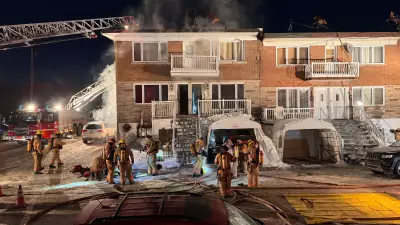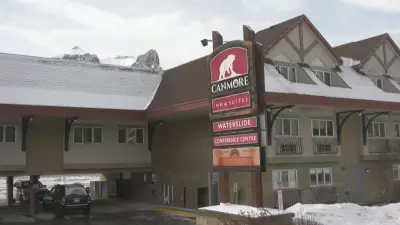
Alberta's bravest are facing their toughest battle yet - not on the frontlines, but within a system that's failing them when they need help most. Families and mental health advocates are sounding the alarm about a growing crisis where first responders suffering from PTSD are encountering denied claims, endless delays, and bureaucratic obstacles that compound their trauma.
The Human Cost of Systemic Failure
Behind the statistics are real families living through nightmares. Paramedics, firefighters, and police officers who regularly witness traumatic events are returning home with invisible wounds that the system seems determined to ignore. The very compensation board designed to protect workers is becoming another source of stress and hardship for those already struggling with severe mental health challenges.
Families Speak Out About the Struggle
Loved ones describe watching their heroic family members deteriorate while navigating a complex claims process that often feels designed to discourage rather than support. The delays in treatment and benefits can stretch for months, sometimes years, leaving families in financial jeopardy and emotional turmoil.
"These are people who run toward danger when everyone else runs away," one advocate explained. "Yet when they need support, the system turns its back on them."
A Pattern of Denial and Delay
Advocates point to several concerning patterns emerging in Alberta's first responder community:
- Claims being repeatedly denied despite clear evidence of work-related trauma
- Lengthy wait times for essential mental health treatments
- Complex paperwork requirements that overwhelm those in crisis
- Inconsistent decision-making across similar cases
- Appeals processes that drag on indefinitely
The Urgent Need for Reform
Mental health professionals and advocacy groups are calling for immediate changes to how Alberta handles first responder PTSD claims. They emphasize that timely access to care isn't just about compensation - it's about saving lives and preventing further deterioration of mental health conditions.
The current system is creating additional barriers to recovery for those already facing the daunting challenge of overcoming post-traumatic stress. Many first responders report that fighting for benefits becomes a full-time job, diverting energy from their recovery.
Moving Forward: A Call to Action
As awareness grows about this critical issue, families and advocates are demanding that Alberta's government and workers' compensation board implement meaningful reforms. They're calling for streamlined processes, better training for claims adjudicators about trauma-related conditions, and a system that prioritizes timely care over bureaucratic hurdles.
The message from those on the frontlines is clear: Alberta's heroes deserve better than to be abandoned in their darkest hours. The province that depends on their courage must now show the same courage in fixing a broken system.





